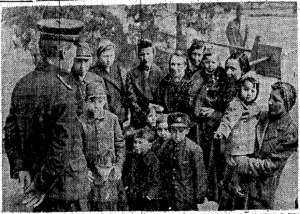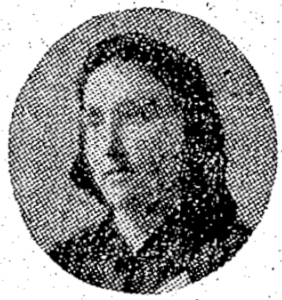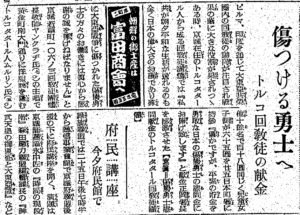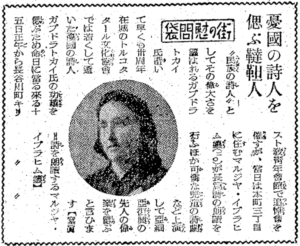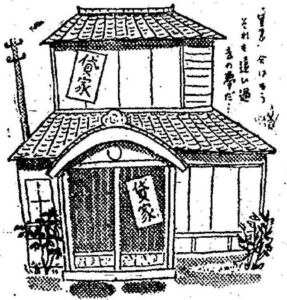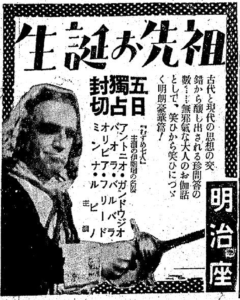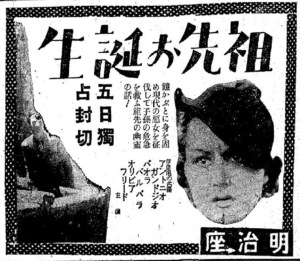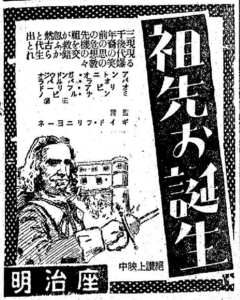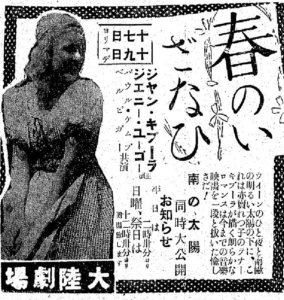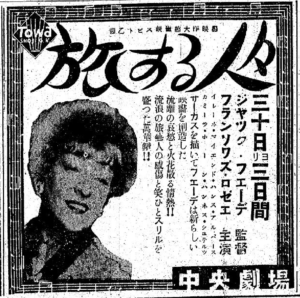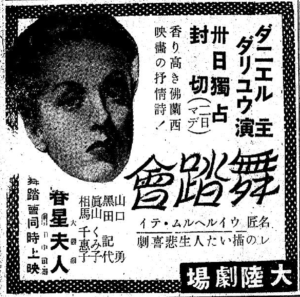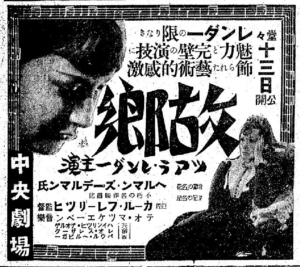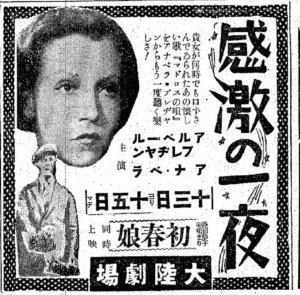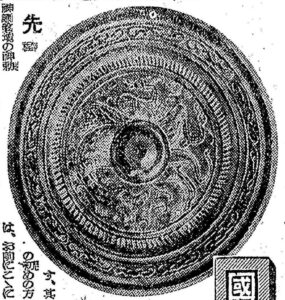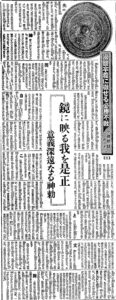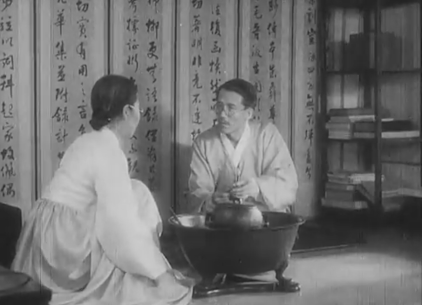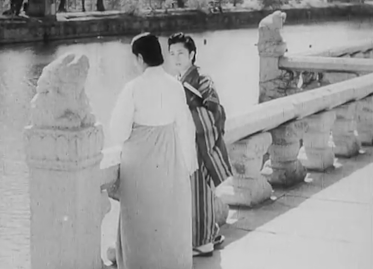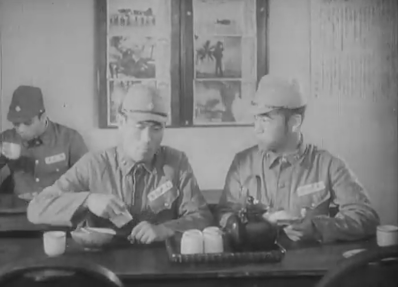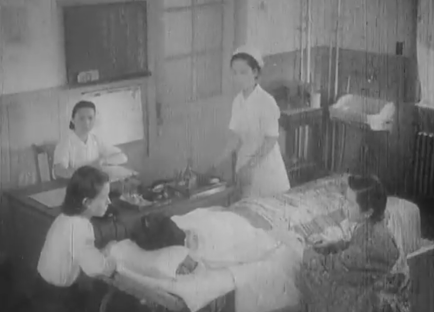I'm posting here today to share a rather unsettling article from colonial Korea in 1943. It is timely, as this article was published almost exactly 80 years ago on June 19th, 1943. This piece details the activities of a Korean collaborator teacher named Mr. Ōhara. His actions during this dark period of history serve as a chilling reminder of the extent of Imperial Japanese indoctrination and control.
The article depicts Mr. Ōhara endeavoring to brainwash a group of young Korean girls at a textile factory, imposing upon them Imperial Japanese propaganda. The girls, some as young as 12 and 13 years old, were forced to speak only Japanese, identify as Japanese people, and pledge their loyalty to Imperial Japan.
Something peculiar and unsettling about this article is the warning it includes about "面従腹背" (menjū fukuhai), or hypocrisy. It's a term that portrays people as being outwardly obedient, but inwardly rebellious. The usage of this phrase betrays an intrinsic distrust towards the Korean people and their loyalties, a skepticism that ultimately proved justified with the jubilation expressed by most Koreans upon Imperial Japan's defeat in August 1945.
Furthermore, the article cruelly dehumanizes Koreans who resisted the Imperial Japanese identity, terming them "just objects". This chilling rhetoric reflects the cold colonial attitude - those Koreans who resisted were no longer viewed as humans but as objects.
This article also has curious allegations that the Koreans were actually Japanese in ancient times. 'Japanese-Korean Unification' propaganda often contained such attempts to paint ancient Koreans as Japanese. In later propaganda in 1944, this 'ancient Koreans = Japanese' propaganda would develop into calling Koreans the descendants of Susanoo, the younger brother of the Sun Goddess Amaterasu, the ancestor of the Japanese nation (see Governor-General Koiso's speech).
Mr. Ōhara, as portrayed in the article, is likely an ethnic Korean collaborator for Imperial Japan, with a narrative painting him as deeply influenced by his experiences at a teaching college in mainland Japan.
I must add a note about the ethics of posting such propaganda content. The intention behind sharing this distressing piece is not to sensationalize, but to bring to light a crucial part of history that is often buried or forgotten. It may be a controversial thing, but I believe that making such historical material accessible can help us grasp the scale of colonial injustices more clearly.
Regrettably, there is a dearth of English-language scholarship about the colonial period of Korean history, relative to the enormous wealth of primary source material that remains so poorly documented. As someone passionate about this topic, I aim to contribute to filling this knowledge gap, even if only a little, by posting these materials whenever I can. I believe this is crucial in providing a more nuanced understanding of Korea's past, as painful as it may be.
(Translation)
Gyeongseong Ilbo (Keijo Nippo) June 19, 1943
"Shame on hypocrites who are outwardly obedient, but inwardly rebellious in their hearts!"
Young workers were moved by Mr. Takeo Katō's speech and bursting with patriotism
"We are Imperial Citizens!"
[Busan telephone report] Now that there are 25 million people in the Korean peninsula needing to integrate and become distinguished Japanese people among a nation of 100 million, there is a passionate young man who, along with many workers, fuels the fiery spirit of loyalty and dedication to work. This man is Mr. Keiichi Ōhara (32), who works as a labor affairs officer at the Busan Forestry Industry Company, Busan Factory in Jeonpo-ri, Busan. Invited to come to Korea by the Korean Federation of National Power, the visiting speakers, including the writer Mr. Takeo Katō, have sparked Mr. Ōhara's patriotism into a raging torrent. Specifically, during the Busan speech, Mr. Katō advocated the unification of Japan and Korea as follows.
"Just 25 million Koreans cannot survive on their own. They must absolutely be with Japan. If Koreans show loyalty with such calculating feelings, that is not to be appreciated. Although the word Imperialization is being shouted these days, I don't think Imperialization is the right word. The Koreans were Imperial people from the very beginning, but they subsequently became separated from Japan. Through annexation, they returned to the old ways. The sincerity of our Korean brethren must be pure loyalty that springs forth naturally. There is no other way to prove this feeling than through our mutual blood."
Although his voice was low, Mr. Ōhara was strongly struck by how patiently and clearly Mr. Katō delivered his arguments with sincerity. Then, Mr. Ōhara jotted down his pent-up, boiling feelings in a letter and sent it to Mr. Katō, who was staying in Seoul. In his letter, Mr. Ōhara pledged his earnest oath to patriotism, lamented that a minority of the Korean people still have not become awake, expressed his joy for being born in Imperial Japan, and described the mental preparation that each person on the home front should bear in the decisive battle. Reading this, Mr. Katō said, "I am very happy to have found such a friend of passionate sympathies here. This is a great harvest from my coming to Korea," he said with satisfaction. Thus, a passionate bond was formed between Mr. Katō and Mr. Ōhara, which was superior to any teacher-student relationship. Now, let's take a look at Ōhara's life, which is "always on the battlefield":
When visiting the Busan factory of the forestry industry, you see that 140 to 150 working women (even though they are called working women, many are 12 or 13 years old) are working happily in front of their thread winding machines. These little female warriors are all daughters from poor families, and of course, they have not received schooling, but they speak excellent Japanese and live as Imperial people, attending one hour of lecture during lunch break everyday.
 |
| Original caption: Actual educational scene of Mr. Ōhara instructing the fighting girls at their workplace |
Leader Ōhara's warm thoughtfulness as a company executive has borne fruit today. After touring the factory, he said, "I used to be an elementary school teacher, but due to family circumstances and connections, I have been involved in this factory for two years". He continued to speak of his firm belief in the spirit of service at work as follows.
"These children (referring to the workers) are also among the 100 million of Imperial Japan. Those who cannot live life centered on the Japanese language will not possibly be able to understand the concept of the National Body. If you are a National Person and do not understand the blessings of Imperial Japan, then you are just an object. I was deeply moved by Mr. Katō's speech the other day. Although my power is weak, I want to improve the qualities of those children as Japanese people as much as possible. They are sincerely united in their one-hour lesson each day. The method of education starts with Volume 1 of the reader and generally progresses to Volume 4 in a year. Through activities such as various ceremonies, military songs, sending and receiving brave soldiers who are dispatched, I let them learn what kind of situation our nation is facing now. While I was studying at Seoul Teachers School, I learned the true, beautiful virtues of the people of mainland Japan from the communal life in the dormitory, but I cannot help but feel uncomfortable when I think that there are still many Korean compatriots who dare to have dark feelings of hypocrites who are outwardly obedient, but inwardly rebellious in their hearts, without coming into contact with these beautiful virtues. My words may be a little exaggerated, but if I can serve the Imperial Movement somewhat through my current field of work, I am happy to become a cornerstone and devote my life to this cause."
His speech becomes even hotter, and the enthusiastic spirit of the one who puts things into practice resonated strongly in his words. Eventually, the noon siren rang. The factory girls who came out from the work place offered silent prayers all at once. After a while, their lunch break ritual began. After Mr. Ōhara left for the education room, Mr. Yūhachi Katō, the factory manager, also said, "He is a very enthusiastic man. You can entrust him with everything. The workers' desire to learn the Japanese language is beyond our imagination, and there has been no turnover of female workers since this system was established. Their performance has increased so much that the company executives are telling us to follow the example of the Busan factory in Korea."
At that time, the factory's three teachings, "It is also a battlefield here!", "Follow Admiral Yamamoto's Example!", and "If this hand relaxes, then its fighting power will also relax!" could be heard overflowing from the windows full of spirit by the girls chanting and repeating them every day at the end of their lessons. Behold the brave appearance of these lovely, fighting girls! They are also becoming a force which will cooperate in the construction of Greater East Asia. [Photo = Actual educational scene of Mr. Ōhara instructing the fighting girls at their workplace (censored by Busan Fortress Command)]
(Transcription)
京城日報 1943年6月19日
恥じよ"面従腹背"
加藤武雄氏の講演に感動、迸る青年工員の愛国心
我等は皇民だ
【釜山電話】今こそ半島二千五百万が立派な日本人として一億の中に融け込まねばならぬと多数工員と共に烈々たる尽忠奉公の精神を燃えたたせ、職場に敢闘する熱血男子がある。それは釜山府田浦里森林産業会社、釜山工場に労務人事係として働く大原敬一君(三二)で、さきに国民総力朝鮮聯盟の招聘によって来鮮した作家、加藤武雄氏以下の講演行脚を機会に大原君の抱く愛国の熱情には遂に奔流となって堰を切った。即ち一行の釜山講演の際、加藤氏が説いた内鮮一体論。
「二千五百万だけじゃ生きてゆけない。矢張り日本と一緒でなければ駄目だ。こういった打算な気持ちで尽くす忠義なら有難くないが、また近頃皇民化が叫ばれている。皇民化ではない。もともと皇民であったのだが、途中一寸別れていただけで併合によって古に復ったのだ。朝鮮同胞の赤誠は自然に湧き出る純粋な忠魂でなければいかん。この気持ちはお互いの血液を以て証明するより外にない。」
声は低いが真情を吐露して諄々語る加藤氏の論旨に大原君は強く打たれた。そして間もなく同君は鬱勃として沸き立つ自分の気持ちを一文に綴り、滞城中の加藤氏へ送った。文面には我が身の生い立ちから皇国日本に生を享けた歓喜、半島人にして未だに目覚めぬ少数の一部があるのを歎じ、決戦下銃後の一人一人が負担すべき心構え等、切切と愛国の至誠を誓っており、これを読んだ加藤氏は、「僕はここにこんな一人の熾烈な共感共志の友を得たことはこの上なく嬉しい。こんどの来鮮での大いなる収穫である」とさも満足げに語った。かくして加藤氏と大原君との間には忽ち師弟の関係にも勝る熾烈なる心の契りが結ばれたのであるが、さて大原君の実践する"常在戦場"生活とは?
森林産業釜山工場を訪ねると、撚糸業を営む同工場には百四、五十名の工女さん(工女といっても十二、三歳の少女が多い)達が繰糸機の前で嬉々として働いていた。この小さな女戦士は皆貧しい家庭の子女で、学校教育など勿論受けて居ないが、一日一時間昼休みを利用しての講習で立派な国語を話し皇民の生活をなしている。
一人の指導者大原氏の熱を会社重役の温かい思いやりが期せずして今日の実を結んだのだ。工場を一巡した後、同君に聞けば、「僕はもと国民学校の教員でしたが、家庭の事情と縁あって二年前からここの工場に厄介になっています」と前置きして職域奉公の貫く堅き信念を語り続ける。
「あの子供(工員を指す)らも一億の一人です。国語生活が出来ない者に国体観念など解る筈がありません。国民にして若し皇国日本の有難さが解らないとすれば、それは単なる物体に等しい。僕は先日加藤先生の講演にいたく感動を覚えました。微力ではありますが、あの子供達にいくらかでも日本人としての資質を向上してやりたいと思っています。一日一時間の学課にみんなは心から一心になっています。教育の方法としては読本の巻一から始めて一年間に大体巻四まで進める。その他いろいろの儀式や軍歌、出征勇士の歓送迎等、実際を通じて国家が今どんな場面に直面しているかを話して聞かせます。僕は京城師範に在学中、寄宿舎の共同生活に於いて内地人の真実の美点を習得しましたが、多くの半島人の同胞の中にはまだまだこの美点に触れることなく敢えて"面従腹背"の暗い気持ちで居るのがありやしないか、思うだに不快です。言葉は少し大袈裟ですが、僕の現在の職域を通じて皇民運動に多少なりと尽くすことが出来たら喜んで礎石となり一命を捧げていいと決心しています。」
語気はいよいよ熱を帯び、実践する者の気魄が言葉の中に強く響く。やがて正午のサイレンが鳴った。職場から出て来た女工さん達が一斉にその場で黙祷を捧げる。暫くして彼女らのお昼の日課がはじまった。大原君が教養室へ去ったあとで工場長の加藤勇八氏も、「実に熱心な男です。あれなら全部任せていい。工員らの国語を習いたいという意欲はわれわれの想像以上で、この制度を設けてから女工の移動がありませんね。それだけ業績も挙って本社の重役も朝鮮の釜山工場を見倣えといっている位です」と述懐した。
そのとき教養室の窓からは女工さん達の唱和する工場三訓、「ここも戦場だ」、「山本元帥に続け」、「この手弛めば戦力弛む」が元気一ぱいな声で窓から溢れて来る。学課の終わりに毎日繰り返される職場の固き誓いである、可憐な少女達の闘う健気な姿。これも大東亜建設へ協力する戦力となるのだ【写真=大原君と職場に働く少女戦士の教養実況(釜山要司検閲済み)】
Source: https://www.archive.org/details/kjnp-1943-06-19

